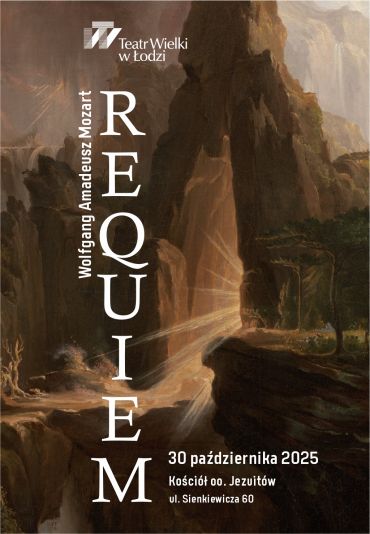Concerts
Menu left

MOZART - REQUIEM
Requiem – a mythical work
It is hard to find another piece in the history of music that is surrounded by as many legends, like a densely written palimpsest. And although there are compositions whose creation was also interrupted by the death of their authors, none of them—neither Puccini’s Turandot, Berg’s Lulu, nor Mahler’s Symphony No. 10—evoke emotions like Mozart’s Requiem in D minor.
From the very moment it was commissioned, the piece was shrouded in mystery. In 1791, Austrian aristocrat Franz von Walsegg-Stuppach sent an anonymous representative to Mozart to commission a Requiem Mass. Count von Walsegg was known for commissioning works from various composers and then presenting them as his own compositions—he was a great admirer of music but, unfortunately for him, lacked compositional talent. The piece ordered from Mozart was meant to be a tribute by the count to his deceased wife Anna. Although von Walsegg tried to claim authorship of the Requiem, he never succeeded. Thus, thanks to the money of a wealthy plagiarist and a desire for fame, European musical culture gained one of its most beautiful gems.
The second reason the Requiem is regarded as a mythical work is the composer’s death before its completion, which has led to much speculation regarding the authenticity of the composition. It is commonly accepted that Mozart’s original music ends at the 8th measure of the Lacrimosa sequence, with the rest completed by Franz Xaver Süssmayr in Mozart’s style. To this day, this issue remains controversial.
The Requiem, set in the dramatic key of D minor, combines classical form with Baroque counterpoint and deep emotional expression. Monumental choral sections alternate with lyrical solo passages, creating a solemn portrayal of the Last Judgment and hope for salvation. Particularly moving are the parts Dies irae and Lacrimosa, expressing terror and grief in the face of death.
On the same evening, a contemporary piece will also be performed—an arrangement of the Lacrimosa sequence bearing the same title. This work, dedicated to the memory of Krzysztof Penderecki, was composed by Magdalena Cynk.








